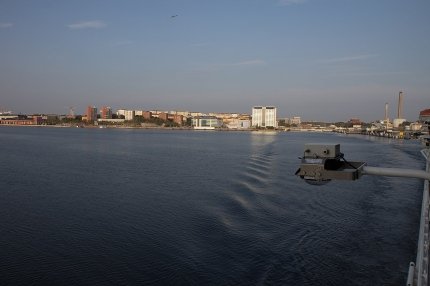According to the correspondent of The Telegraph in Berlin, James Rothwell, Russia is deliberately inciting threats and tensions in the region of the Aland Islands in the Baltic Sea.
Points of attention
- Russia's deliberate actions in the Åland Islands region incite threats and tensions in the Baltic Sea as part of a hybrid war against EU countries.
- The Finnish military emphasizes the importance of patrolling the area to prevent security breaches and sabotage by Russian ships transporting oil through Finnish waters.
- Despite increased monitoring by NATO and EU countries, Russia's provocations in the Åland Islands area continue to pose security threats, requiring vigilance and monitoring.
- The presence of stray ships potentially damaging underwater cables and a shadow oil fleet bypassing sanctions highlight the challenges posed by Russia's activities in the region.
- The demilitarized status of the Åland Islands underscores the need for heightened security measures to counter Russia's provocations and maintain stability in the Baltic Sea.
What is known about Russia's provocation of tension in the Åland Islands area
Rothwell emphasizes that although the monitoring of the actions of Russia in the Baltic Sea by NATO members and EU countries has increased after the criminal invasion of the occupation army of the Russian Federation in Ukraine, the situation in the area of the Åland Islands remains quite difficult.
The journalist notes that in accordance with the international security pact, the islands remain a completely demilitarized zone.
There are no fortifications or military forces there.

That is why patrolling the islands for Russia's provocative activities becomes very important.
Everything became more tense. We are very carefully monitoring what is happening, but not in our area of operations, but outside it, in order to get information about what may be approaching our waters, - explains Lieutenant Yuriy Yalava, who is participating, in a comment to the journalist of the publication in patrolling the waters of the Åland Islands, which is an autonomous territory within Finland.
What threats does Russia pose in the area of the Åland Islands
According to the military, the main problem at the moment is stray ships or boats that may try to damage or cut underwater communication cables.
It is noted that such sabotage is part of the hybrid war that Russia is waging against EU countries.
In addition, as Yalava emphasizes, the problem is the shadow oil fleet of Russia, which consists of tankers under the flags of other countries.
These vessels, which bypass sanctions and transport oil and other goods to Russia, bypass the territorial waters of Finland on their way and it is very difficult to stop them.
At the same time, they pose a great danger to the environment, since the general technical condition of such ships is very poor.



